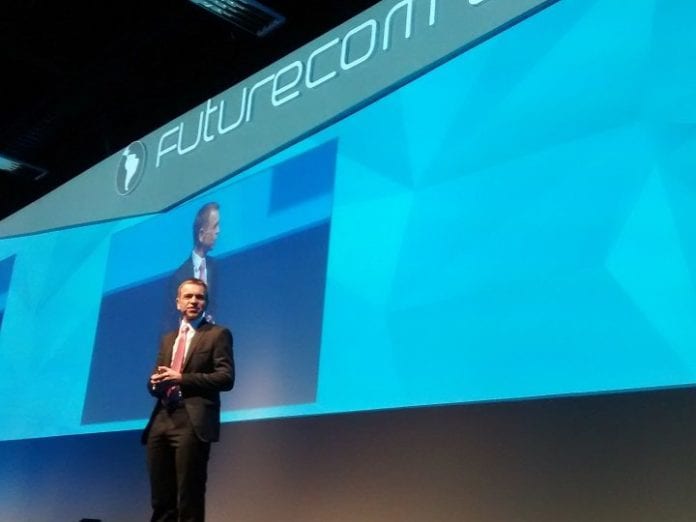SÃO PAULO — Speaking at this week’s Futurecom event, TIM Brasil CEO Rodrigo Abreu said that the move from voice to data is changing the role of carriers and their future relies on understanding that providing connectivity is only the tip of the iceberg.
“We must understand how new technologies are transforming cultural habits,” Abreu said. “Voice will be only one more element added to the customer’s package. And this alone indicates the future telecom operators’ role.”
Abreu avoided commenting on rumors about TIM’s interest in acquiring rival operator Oi (both companies have looked into buying the other), or persistent speculation that TIM would be divided and sold. Instead, the CEO focused his speech on how the transition from voice to data is impacting the entire mobile environment and changing carriers’ revenue streams.
“We are seeing a decrease in revenues coming from both mobile and fixed voice, and an increase in the share from data and pay-TV,” Abreu said. “It begn a while ago worldwide, and we’re seeing it in Brazil as well.”
Abreu believes that the same thing will happen with data as happened when mobile voice replaced fixed-voice services — and the migration from mobile voice to data will be accelerated by the increase of LTE coverage. “Data is revenue-driven. In Brazil, data accounts for 27% of total mobile revenues, while in Japan it is 60%,” he said.
The growth in data services is also related to the increase in smartphones. According to IDC, between last July and August, 9.1 million smartphones were sold in Brazil compared to 2.9 million feature phones. Abreu pointed out that many smartphone users also only use Wi-Fi data.
The TIM Brasil CEO also presented a graphic showing a vision of carriers’ future role, one which sees contents and apps competing on a global scale, over-the-top players and providing more “cool” services. In this future, OTTs and carriers would be partners.
Small cells: During the trade show, TIM announced it had closed a deal with Ipiranga, a fuel distributor, to install small cells in its gas stations with the goal of increasing TIM’s coverage. Abreu did not put a number to the small cell equipment that would be installed. Ipiranga owns about 5,900 gas stations.
Investment: Abreu reiterated the carrier’s intention to increase its investment for the three-year period of 2014-16. The original projection was a R$4 billion ($1.62 billion) — not counting the spending on 700 MHz licenses. Abreu added that the board of Telecom Italia, which owns TIM, is in discussions to increase the three-year investment to accelerate LTE, heterogeneous networks and mobile broadband technologies.

